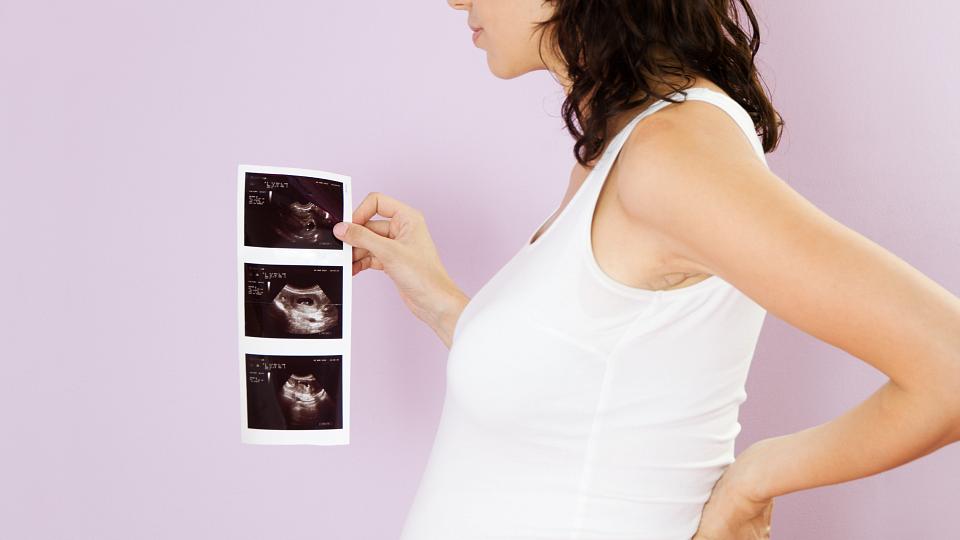Pregnancy & Delivery After Multiple C-Sections
A C-section may not have been part of your birth plan. Many women are thrilled with the outcome—healthy baby, healthy mom—while others are hesitant to go through delivery again after a particularly bad experience (anesthesia didn’t work; recovery was difficult; baby was in distress).
No matter how you feel about cesareans, you might be concerned about your ability to conceive after multiple C-sections or wonder what to do for your next delivery. While there’s no single rule that applies to all women, there are common takeaways to consider and discuss with your doctor.
Risks of Multiple C-Sections
C-sections are serious surgeries and doctors don’t take them lightly. If you’ve had more than one, you know how long it can take to recover from a successful operation. During a C-section, you might experience:
- heavy bleeding,
- infection, and
- bladder and bowel injuries.
Placenta accreta can happen when the placenta implants itself near the c-section scar. If it stays there unrecognized, you can potentially bleed to death during a future delivery.
In the past, the rate of death from accreta was 50 percent. Now, thankfully, most women are not at high risk of dying. Delivering at a place where doctors are experienced with accreta is important.
If you've had a prior C-section, your doctor might suggest an ultrasound to check where your placenta is located during your next pregnancy.
Getting Pregnant After C-Sections
The good news: If you’ve had multiple C-sections you’re just as likely to conceive as women who gave birth vaginally. Doctors recommend you wait at least six weeks after a C-section before having sex and generally encourage using birth control until six to 18 months postpartum.
The longer you have to recover and heal, the lower your risk of complications. That said, if you do get pregnant before the recommended timeline, you can still have a healthy pregnancy. Be sure to talk to your doctor early and often about proper prenatal care.
Can You Have A Natural Birth After C-Sections?
Depending on your medical history, your doctor should support your decision to either schedule another C-section or attempt a vaginal birth after cesarean (VBAC). At the University of Utah, our doctors commit to providing the safest care possible while maximizing your birth experience.
If you’re motivated to have a vaginal birth, we will work with you in support of your decision.
VBAC can be a safe option if you’ve had one or even multiple previous cesarean deliveries. Potential benefits include shorter recovery time and lower risk of surgical complications. However, it’s not for everyone.
For example, the more C-sections you have, the more likely you are to have a uterine rupture. With each C-section, there’s a higher chance of scar tissue buildup, heavy bleeding, and problems with the placenta.
The type of C-section scar (or scars) that you have can also affect your ability to have VBAC:
- Transverse—The most common type, this cut is made from side to side across the low part of the uterus
- Low vertical—Up-and-down cut across the lower part of the uterus
- High vertical—Once the standard for cesareans, this up-and-down cut across the upper part of the uterus is now considered risky and typically only performed for extremely preterm deliveries.
If you choose VBAC, we will closely watch you during labor. If you or your baby shows signs of distress, you'll have an emergency cesarean section.
Both vaginal and cesarean deliveries have risks and benefits. Deciding how you will deliver your next baby after a previous C-section can be a complex decision. Talk to your health care provider. He or she can help you weigh the risks of a repeat C-section against your desire for future pregnancies.
Find a Specialist/Location
Laura Anderson, CNM
Maternal-Fetal MedicineJanice L. B. Byrne, MD
Maternal-Fetal MedicineDonna S. Dizon-Townson, MD
Maternal-Fetal MedicineM. Sean Esplin, MD
Maternal-Fetal MedicineLillian H. Goodman, MD, MPH
Maternal-Fetal MedicineIbrahim A. Hammad, MD
Maternal-Fetal MedicineCara C. Heuser, MD
Maternal-Fetal MedicineNatalie Johnson, AuD
Maternal-Fetal MedicineJoseph R. Mims Jr., MD
Maternal-Fetal MedicineMartha Monson, MD, MSCI
Maternal-Fetal MedicineKimberly Moyle, MD
Maternal-Fetal MedicineLauren M. Murphy, MD
Maternal-Fetal MedicineJessica M. Page, MD
Maternal-Fetal MedicineT. Flint Porter, MD
Maternal-Fetal MedicineDouglas S. Richards, MD
Maternal-Fetal MedicineHannah R. Sammons, CNM
Maternal-Fetal MedicineRosa J. Speranza, MD, MSCI
Maternal-Fetal Medicine
Scheduled C-Section: What to Expect
There are many reasons why you might need or prefer a planned or elective C-section over a VBAC. These include circumstances if you:
- had more than two low transverse cesarean deliveries,
- have additional uterine scars,
- experienced previous ruptures, or
- the baby is abnormally positioned (not headfirst in the birth canal).
Planning a C-section can also be a welcome change from your first C-section when you were likely tired, scared, and in pain. The biggest difference: no rushing. You can set the terms of your experience ahead of time, from the type of anesthesia you prefer (epidural, combined spinal epidural, or general) to who will be present in the operating room.
Some hospitals even accommodate “gentle cesareans,” or “family-centered C-sections,” which aim to make the surgical experience closer to that of natural childbirth by letting parents witness the delivery, achieve skin-to-skin contact quickly after baby emerges, breastfeed right away, and keep mom and baby together as much as possible.
Talk to a Specialist
Concerned about pregnancy after C-section? Talk to one of our specialists today to learn more about your options. No referral necessary.
Resources & Programs for Parents-to-Be
Early Pregnancy Assessment Clinic
The first trimester can be an exciting, confusing, and overwhelming experience. Our Early Pregnancy Care team providers offer comprehensive, non-judgmental early pregnancy care.
Utah Pregnancy After Loss Program
The Utah Pregnancy After Loss Program is designed specifically to support families after a pregnancy loss, newborn death, or severely complicated pregnancy.
UPWARD: Utah Peripartum Pelvic Floor Wellness and Recovery After Delivery Program
Many pregnant mothers have pelvic floor symptoms before and up to 12 months following birth. UPWARD offers expert care to women experiencing pelvic floor issues during a vulnerable time.
SUPeRAD: Substance Use & Pregnancy—Recovery, Addiction, and Dependence Clinic
The SUPeRAD Clinic provides services and treatments for pregnant and postpartum people with substance use disorders and addiction.
YoMingo®: Prenatal Education on the Go
U of U Health offers anytime, anywhere education for expectant mothers through YoMingo®, with all the tools and support you need at every stage of your pregnancy. Find information on prenatal care, labor & birth, postpartum, breastfeeding, and newborn care.
Perinatal Education
Childbearing is an exciting time of growth, change, and personal choices for you and your family. To help you prepare, we offer perinatal education on a variety of subjects related to your pregnancy.












